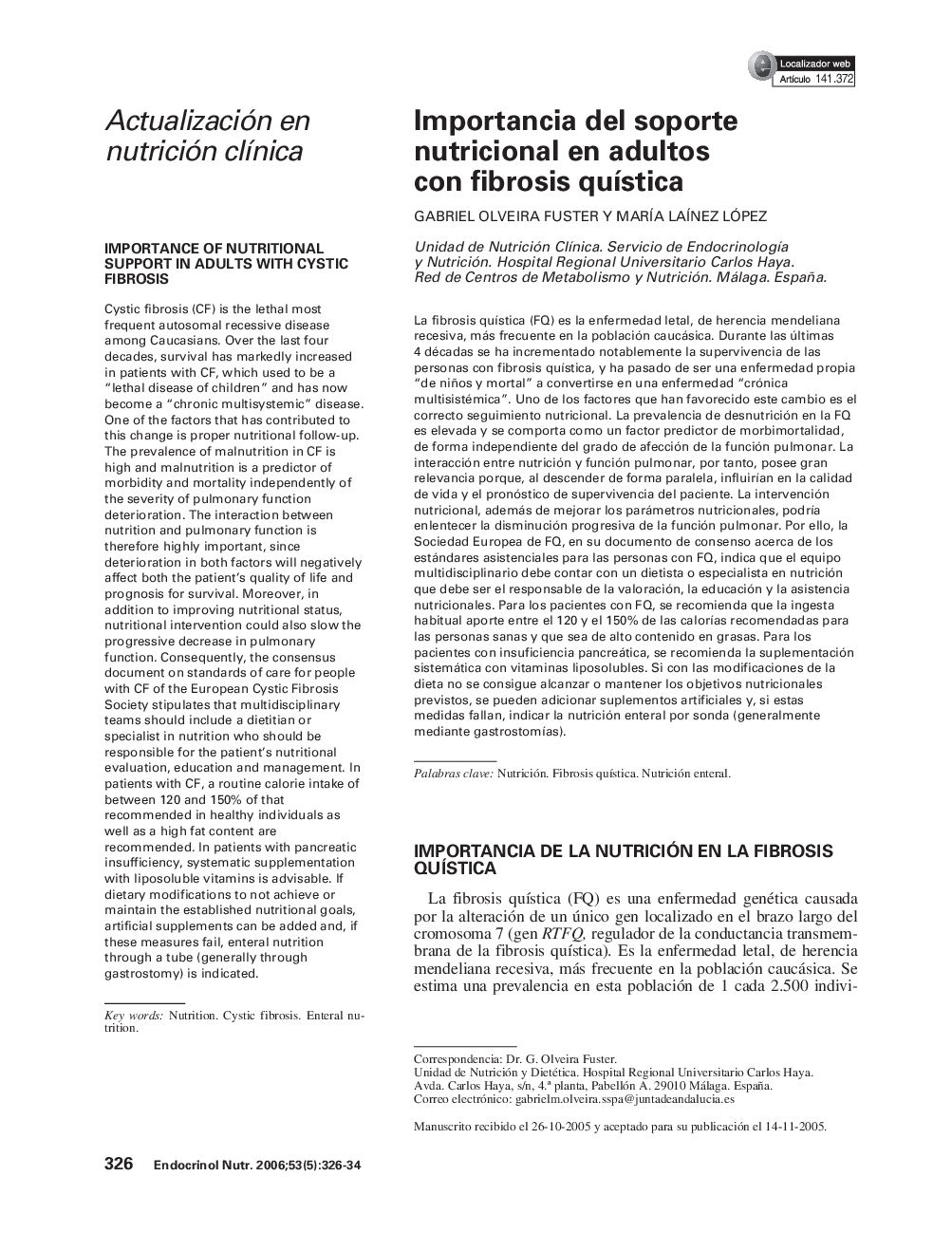| Article ID | Journal | Published Year | Pages | File Type |
|---|---|---|---|---|
| 2774781 | Endocrinología y Nutrición | 2006 | 9 Pages |
Abstract
Cystic fibrosis (CF) is the lethal most frequent autosomal recessive disease among Caucasians. Over the last four decades, survival has markedly increased in patients with CF, which used to be a “lethal disease of children” and has now become a “chronic multisystemic” disease. One of the factors that has contributed to this change is proper nutritional follow-up. The prevalence of malnutrition in CF is high and malnutrition is a predictor of morbidity and mortality independently of the severity of pulmonary function deterioration. The interaction between nutrition and pulmonary function is therefore highly important, since deterioration in both factors will negatively affect both the patient's quality of life and prognosis for survival. Moreover, in addition to improving nutritional status, nutritional intervention could also slow the progressive decrease in pulmonary function. Consequently, the consensus document on standards of care for people with CF of the European Cystic Fibrosis Society stipulates that multidisciplinary teams should include a dietitian or specialist in nutrition who should be responsible for the patient's nutritional evaluation, education and management. In patients with CF, a routine calorie intake of between 120 and 150% of that recommended in healthy individuals as well as a high fat content are recommended. In patients with pancreatic insufficiency, systematic supplementation with liposoluble vitamins is advisable. If dietary modifications to not achieve or maintain the established nutritional goals, artificial supplements can be added and, if these measures fail, enteral nutrition through a tube (generally through gastrostomy) is indicated.
Related Topics
Life Sciences
Biochemistry, Genetics and Molecular Biology
Clinical Biochemistry
Authors
Gabriel Olveira Fuster, MarÃa LaÃnez López,
